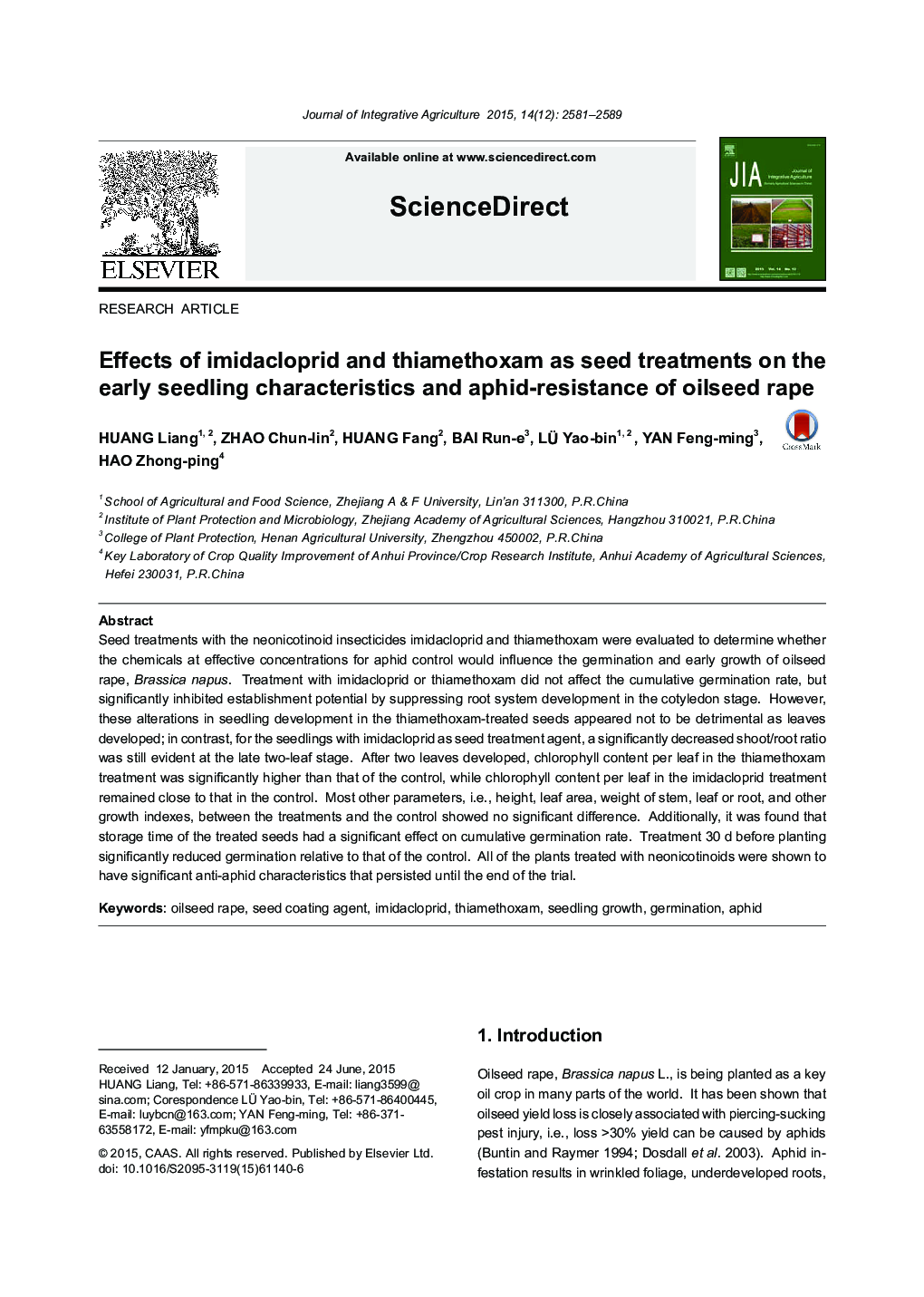| Article ID | Journal | Published Year | Pages | File Type |
|---|---|---|---|---|
| 4494147 | Journal of Integrative Agriculture | 2015 | 9 Pages |
Seed treatments with the neonicotinoid insecticides imidacloprid and thiamethoxam were evaluated to determine whether the chemicals at effective concentrations for aphid control would influence the germination and early growth of oilseed rape, Brassica napus. Treatment with imidacloprid or thiamethoxam did not affect the cumulative germination rate, but significantly inhibited establishment potential by suppressing root system development in the cotyledon stage. However, these alterations in seedling development in the thiamethoxam-treated seeds appeared not to be detrimental as leaves developed; in contrast, for the seedlings with imidacloprid as seed treatment agent, a significantly decreased shoot/root ratio was still evident at the late two-leaf stage. After two leaves developed, chlorophyll content per leaf in the thiamethoxam treatment was significantly higher than that of the control, while chlorophyll content per leaf in the imidacloprid treatment remained close to that in the control. Most other parameters, i.e., height, leaf area, weight of stem, leaf or root, and other growth indexes, between the treatments and the control showed no significant difference. Additionally, it was found that storage time of the treated seeds had a significant effect on cumulative germination rate. Treatment 30 d before planting significantly reduced germination relative to that of the control. All of the plants treated with neonicotinoids were shown to have significant anti-aphid characteristics that persisted until the end of the trial.
